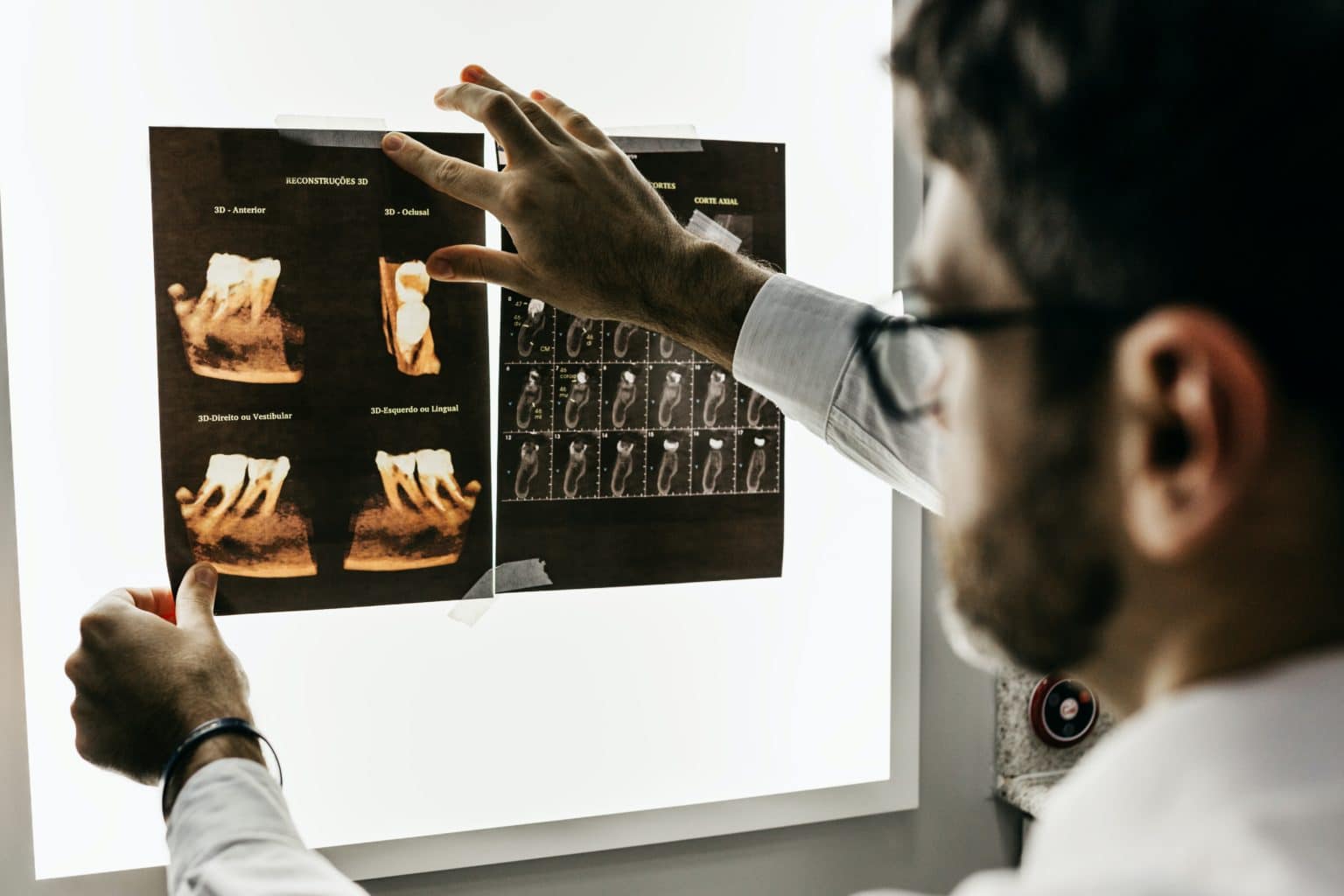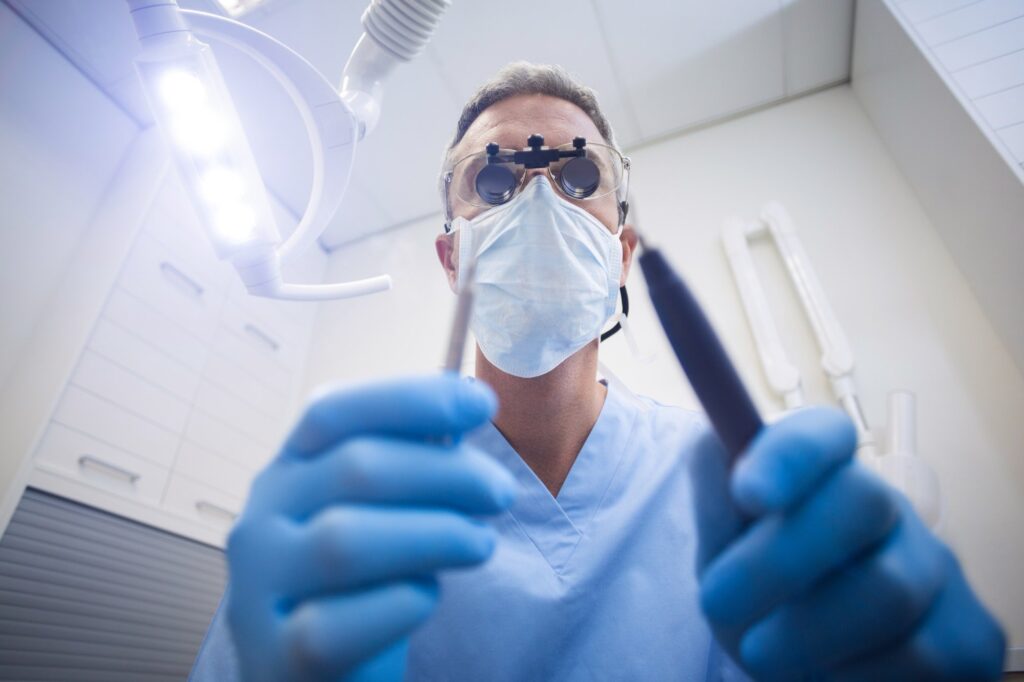Dental X-rays at Casey Dental: What You Need to Know
At Casey Dental in Pittston, PA, we believe in the power of education. Dental X-rays, while common, often come with questions. We’re here to provide clear answers, ensuring that the Luzerne County community is well-informed and empowered to make the best decisions for their oral health.
At Casey Dental, we recommend panoramic X-rays when they’re necessary for your treatment plan, ensuring you receive comprehensive care.
Can X-rays Detect Cavities Beneath Crowns?

Yes, they can. While dental crowns are effective restorations, cavities can sometimes form beneath them. X-rays, especially bitewing and periapical types, can detect such decay. It’s essential to have regular dental check-ups to ensure the health of both the crown and the underlying tooth. At Casey Dental, our team, led by Dr. Casey, uses X-rays to ensure the longevity of your dental work and the health of your teeth.
Common Queries on Dental X-rays Answered by Casey Dental
Dental X-rays are a standard part of dental care, but we understand that our community members often have questions about them. At Casey Dental, we’re committed to providing clear answers to ensure you’re informed and confident in your dental decisions.
- The Most Common Dental X-ray
The Bitewing X-ray is the most frequently used dental X-ray. It’s a type of radiograph that allows dentists to see the areas between your teeth, which are not visible to the naked eye. Bitewing X-rays are particularly useful for spotting early signs of tooth decay and monitoring the fit of dental crowns or fillings. They’re typically taken once a year or as needed, based on your oral health. - Your Right to Decline Dental X-rays
Yes, you can decline dental X-rays. At Casey Dental, we believe in informed consent, which means you have the right to understand and agree to any procedure, including X-rays. If you have concerns about radiation or any other aspect of the X-ray process, please discuss them with us. We’re here to provide information, address your concerns, and ensure you’re comfortable with your dental care decisions.
Panoramic X-rays: When and Why They’re Used at Casey Dental

In the realm of dental imaging, there are various tools at our disposal, each serving a unique purpose. One such tool is the panoramic X-ray. At Casey Dental, we believe in keeping our community informed, so let’s delve into the specifics of panoramic X-rays.
- What are Panoramic X-rays?
Panoramic X-rays provide a broad view of the entire oral cavity in a single image, capturing teeth, both upper and lower jaws, and surrounding structures. Unlike traditional X-rays that focus on specific sections of the mouth, panoramic X-rays give a comprehensive overview. - Are They Always Necessary?
While panoramic X-rays offer valuable insights, they aren’t part of routine dental check-ups. Instead, they’re used for specific situations:- Orthodontic Assessment: Before undergoing orthodontic treatments, a panoramic X-ray can help in planning by providing a full view of teeth alignment and bone structure.
- Impacted Teeth: For teeth that haven’t erupted, especially wisdom teeth, this X-ray can show their position and if they might cause potential issues.
- Dental Implants or Extractions: Before procedures like implants or extractions, a panoramic X-ray can guide dentists in understanding the bone structure and ensuring precise treatment.
- Jaw Disorders: For issues related to the temporomandibular joint or other jaw disorders, this X-ray can provide a detailed view of the jawbone.
Safety of Dental X-rays: Dispelling Concerns at Casey Dental
One of the frequent questions we encounter at Casey Dental is about the safety of dental X-rays. It’s natural to have concerns, especially when it comes to radiation exposure. We’re here to provide clarity and ensure our community is well-informed.
- Are Dental X-rays Safe?
Yes, dental X-rays are safe. Here are the reasons why:- Low Radiation Levels: Modern dental X-ray equipment is designed to minimize radiation exposure. In fact, the amount of radiation from a dental X-ray is extremely low compared to other natural sources of radiation we encounter daily.
- Focused Imaging: Dental X-ray machines are designed to focus only on specific parts of the mouth, ensuring that the rest of the body isn’t exposed.
- Protective Measures: At Casey Dental, we use protective lead aprons and thyroid collars to shield patients from any scattered radiation, further ensuring safety.
- Digital X-rays: Many dental offices, including ours, use digital X-rays, which reduce radiation exposure by up to 80% compared to traditional film X-rays.
- Tailored Approach: X-rays are recommended based on individual needs. We ensure they’re only taken when necessary, further minimizing exposure.
- Why the Concern?
Concerns often arise due to misunderstandings or lack of information about radiation. While the term “radiation” might sound alarming, it’s essential to understand that we’re exposed to natural radiation daily, from the sun, soil, and even certain foods. The radiation from dental X-rays is just a fraction of this natural exposure
Your Right to Informed Decisions

You always have the right to understand and consent to any dental procedure, including X-rays. If you ever have concerns or questions, our team is here to provide answers. We believe that an informed patient is an empowered one.
Empowering Luzerne County with Dental Knowledge
Dental care goes beyond procedures; it’s about understanding and making informed decisions. At Casey Dental, we’re committed to being a resource for Luzerne County, ensuring every resident has the knowledge they need for optimal dental health. From understanding X-rays to daily oral hygiene, we’re here to guide and support our community.






